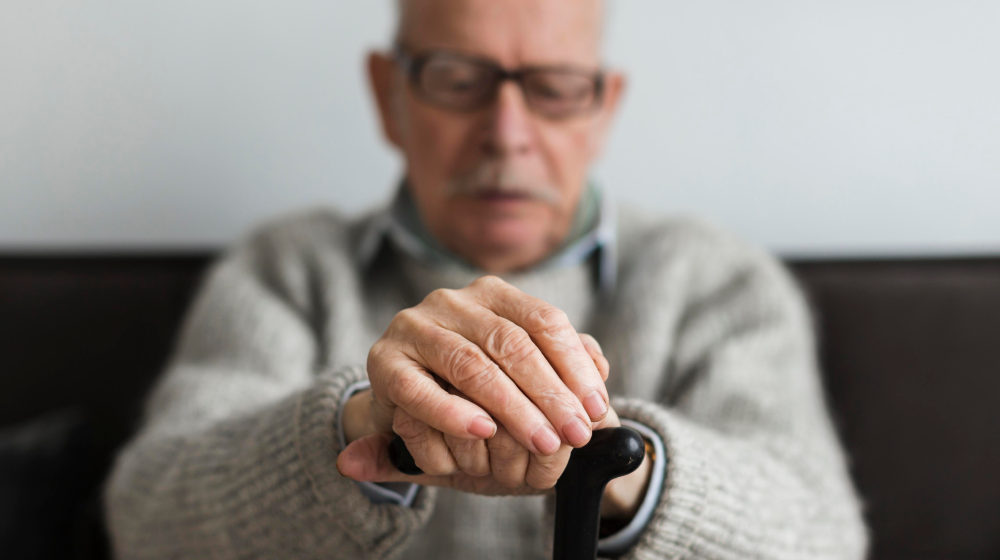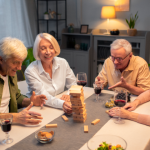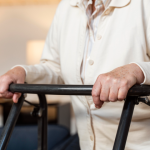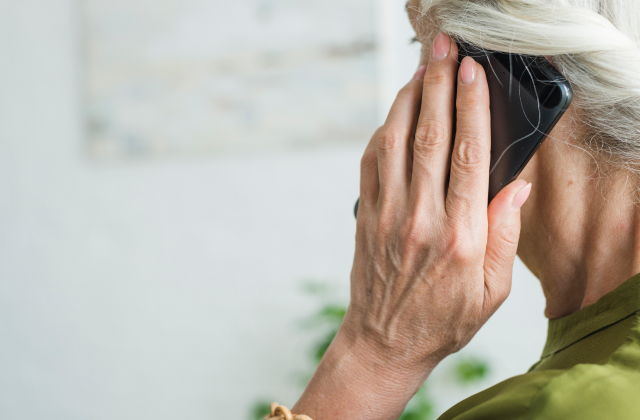How To Maintain Safety & What To Do When An Older Adult Living Alone Has No Family Members
In New York City many older adults live alone without family nearby. Living solo doesn’t have to mean being unsafe; with proper safeguards, supports and professional assistance, an older adult can have some safety, dignity and quality of life.
“Living alone doesn’t have to mean unsafe — safety doesn’t depend on who is with us, but on the protective frameworks we’ve put in place.”
Potential Isolation-Safety Risks
When an older adult is home alone without family nearby, we have potential isolation safety risks that may end with
- Medical decline — no one is able to come to help immediately if a accident or sudden illness occurs.
- Socially isolated — high risk of depression, anxiety, or cognitive decline.
- Increased challenges with small tasks — shopping, cooking or taking medicines.
- Financial & safety risks — risk of scams or home disasters.
Basic Safety Safeguards
- Older adults should develop safety protocols even without family members nearby;
- Alert system – SOS medical alerts.
- Regular check-in – from real neighbors, volunteers or community agency staff.
- Home preparation – lighting, minimal clutter, grab bars.
- Medication management – visual reminders and/or medication dispensers.
- Community engagement – clubs, libraries or social/cultural groups for friendships and engagement.

The Importance of Professional Home Care
For seniors without family, the essential services provided by home care agencies such as Angel Care Inc. NY include:
- Personal Care – bathing, dressing, grooming.
- Meal Preparation – balanced nutrition
- Household Help – cleaning, laundry, errands
- Medical Supervision – scheduling appointments and monitoring
- Companionship – trustworthy human company and monitoring to mitigate loneliness
“Professional caregivers are not simply helpers; they are the lifeline that renders solitude synonymous with security.”
Emotional Safety
Safety is neither solely definable by physical boundaries, nor encapsulated within protective measures. Solitary seniors benefit from numerous other supportive undertakings such as:
- A regulated daily schedule
- Pet camaraderie
- Hobbies including reading, gardening, or crafts.
- Volunteerism, transforming solitude into contribution.
NY Community Resources
New York City has numerous programmatic delivery mechanisms to serve solitary seniors:
- NYC Department for the Aging – protective services, meals, programs
- Older Adult Centers – safe meals, socialization, and activities
- Volunteer Companion Programs – regular follow-up phone calls, or visits
- Medicaid Home Care Services – Long-Term Home Health Care services for eligible seniors
Practical Safety Steps for Seniors Alone
- Contact a home care agency, on your own, through NYIA or a local agency for the least restrictive assessment.
- Enroll in a medical alert service.
- Attend a local neighbor senior center
- Seek professional help from Angel Care Inc. NY for an action program of home care
- Write up an emergency plan with health and contact information
Final Thoughts
An elder adult without family and friends nearby can live a safe and satisfying life. The right mix of professional home care, community service support and planning and prevention produces solitude into security.
At Angel Care Inc. NY we aim to keep every elder adult- with or without families – cared for with respect and dignity in everyday living.
💡 Disclaimers
This article is provided for informational purposes only and is not intended to be medical, legal, or professional advice. Seniors and families are advised to seek the counsel of qualified health care providers, social workers, and care coordinators to meet the individual needs of seniors and families.

💡 "The senior clubs outlined in this article are independent organizations. Angel Care Inc. NY provides home care services and provides this information for families searching for service in Brooklyn." In the constant ebb and flow of Brooklyn, many older adults and their family members are searching for not just tangible medical resources, but a place where community, friendship, and energy collide. Senior clubs in Brooklyn are just that – a safe, active, environment where older adults can share, connect socially in creative ways, and find enjoyment in their daily lives. “A senior club is not just a room with chairs and activities on a schedule; it is a refuge where experience meets friendship, and where aging is cherished instead of merely tolerated.” Why Are Clubs for Seniors so Important? The greatest advantage of a senior club is their capacity to address the whole spectrum of human needs – social, emotional, intellectual, and physical. These centers are: Social connectors – Decreasing isolation through authentic friendships. Learning places – Offering tech, health, and arts workshops. Wellness havens - Promoting movement through chair yoga, tai chi, and mild aerobics. Community liaisons - Connecting families to local agencies, home care services, and advocacy. For many seniors who live alone, these clubs are more than a schedule of activities. They become an adjunct home. Types of Activities at Brooklyn Senior Centers The range of activities is equally remarkable, reflecting the multi-cultural essence of Brooklyn: Arts & Creativity: Members of all different disciplines, from visual arts to knitting, engage their creative side. Cultural Celebrations: Festivals that honor Caribbean, Russian, Italian, Jewish, and countless other customs and traditions. Health & Physical Activity: Tai chi, dance, or breathing with awareness for physical balance and resilience. Technology Training Classes: Lessons related to smart phones, video chatting, staying safe online. Community Outings: Trips to museums, concerts, and theaters as a group. Not only do these activities offer diversion, they enhance cognitive health, increase mobility, and provide renewed purpose. Your Older Adult Senior Centers offer a chance to get healthy, keep active, and engage your brain. Who Benefits the Most? Senior Centers are available to all residents aged 60 and over, yet, the following groups benefit most: Newly retired individuals who are learning to adjust to a new lifestyle. At risk seniors with chronic conditions that want to stay active. Independent older adults that want social interaction. Family caregivers that need respite and peace of mind. A Distinctive Advantage of Brooklyn: Real Places to Go to Unlike cities, Brooklyn has a wide and diverse network of senior centers. Each neighborhood has senior centers, so that seniors can consistently find folks who speak their language, practice their culture, and enjoy their group of friends. Grant Square Neighborhood Senior Center (Fort Greene Council) 19 Rogers Avenue, Brooklyn, NY 11216 →Meals, fitness, arts, and more. Park Slope Center for Successful Aging. Park Slope Center for Successful Aging Provides older adults with lectures, fitness, cultural activities and social hours. Bay Ridge Center for Older Adults 15 Bay Ridge Avenue, Brooklyn, NY 11220 → Provides wellness classes, tech support and meals. Scheuer House Older Adult Center (Coney Island, JASA) 3601 Surf Avenue, Brooklyn, NY → Offers multilingual activities and support to coastal communities. Fort Hamilton Senior Recreation Center Fort Hamilton Senior Recreation Center 9941 Fort Hamilton Parkway, Brooklyn, NY 11209 → Very large recreational site, with fitness and community programs. “In Brooklyn, a senior can walk into a club and hear the familiar notes of their mother tongue — and in that instant, feel at home again.” These are but a few examples — throughout the borough, there are dozens of neighborhood centers that provide this kind of targeted support. How Senior Clubs and Home Care Are Connected Senior clubs offer enrichment and companionship opportunities, while many older adults also want to make sure they have individualized care at home. Enter Angel Care Inc. NY. For the clientele that we provide home care, senior clubs add one very important aspect — socialization. The combination of these two supports provide a balanced approach to how they live their lives — secure at home with assistance and with the stimulation of a group. Angel Care is family focused, and ensures that families do not have to choose between medical care and emotional wellness. Practical Take-Aways for Families If you are thinking about a senior club in Brooklyn for a loved one: Check location – Being nearby makes participation accessible. Go together to see a club – Attend an open house or take a trial class. Check with home care – Work out club schedules and aide visits. Ask about tailored programs – Some clubs will facilitate dementia-friendly groups or caregiver groups. Final Thoughts Over time a senior club in Brooklyn is more than a place in the community — it is a lifeline. They embody the philosophy that growing older should come with dignity, delight and connection. They provide families with the reassurance that their loved ones remain engaged and important. At Angel Care Inc. NY, we believe it is important to meet the medical needs of older adults, and to support their entitlement to community life. Personalized home care combined with access to Brooklyn’s rich senior clubs allows families to take a bold step forward to pursue a broader sense of wellbeing.

Home care is an ever-evolving space. 2025 has ushered in some impactful changes for seniors, caregivers, and families in New York. While reading through the legislative terminology can sound complex, the question behind all questions is simple: how does this impact the day-to-day life of older adults who are relying on support at home? “Behind every law or regulation there’s a family asking, “What does this mean for us?” We want to provide the answers.” Increased Rates for Home Care Aides As of January 2025, the increased minimum wage for home care aides in New York: $19.10 per hour for New York City, Long Island, and Westchester. $18.10 per hour for the rest of New York State. What this means for families: Care agencies may become somewhat more costly. However, increased wages will potentially help keep more caregivers in the field of care, helping alleviate staffing shortages, and thereby giving families dependable assistance. Changes to the CDPAP Program Consumer Directed Personal Assistance Program (CDPAP) is a program that allows seniors and people with disabilities to retain a family member, friend, or trusted person as a paid caregiver. Lawmakers in Albany are making progress with new rules for 2025 to reintroduce choice for families instead of limiting the number of governing agencies in the process. What it means for families: In the near future families will have greater choice in an Fiscal Intermediary (the agency that pays and completes the paperwork). This could mean less services, and less wait time. New Rules for Home Care Agencies The New York Department of Health created new steps for preparing home care agencies to manage their licenses. What it means for families: Some agencies may have some stumbles and some paperwork. For clients, this should not affect their daily care cline however may slow the velocity of rollout to new services or new locations. Medicare and Home Health Medicare altered the payment rates for home health care in 2025 at the federal level. There are completely new rules for agencies to collect more information on clients (OASIS forms) to be rolled out in July. What this means for families: If clients have Medicare home health care, the way agencies are collecting data to document care will be much more inclusive. For clients, probably they have to dig deeper during visits. This is all intended to track better quality of care. Telehealth Rules Will Change Again During the pandemic telehealth became a true godsend. In 2025 Medicare will continue pay for most telehealth services from home until September 30, 2025. After that, pay will be limited and patients will receive reimbursement for very few telehealth visits. What it means for families: For now, seniors will see doctors virtually in their homes. Later in the year, telehealth visit coverage will decrease resulting in in-person visits. Why These Changes Are Important When taken as a whole, these new guidelines suggest two overarching trends: Caregivers are getting more supports – wages rising, acknowledgment for work and flexibility in programs. Paperwork and compliance are creating increases – limiting pay and/or how quickly seniors consent to care. "Laws may be changing but the need is still the same – families need safe, reliable, and affordable care for their loved ones." Angel Care Inc. NY Supports Families New laws or not, one thing will not change - families need support. Angel Care Inc. NY: Helps families understand what new laws mean for them. Provides families with support for their Medicaid applications and assessments. Provides families with trained home care aides with the wage rates as determined by the new law. Enrolls families in the CDPAP so families can be paid for providing care to their loved ones. Notifies clients when telehealth and Medicare laws change. To Conclude New laws in 2025 will change from home care in New York and across the country. Some of the changes will introduce obstacles, and others will increase stability and fairness in care. For seniors living alone or living with limited supports – these laws suggest the importance of having a trustworthy agency watching out for them! Angel Care Inc. NY is here to support families through each step from the laws to delivering care home. Despite the increased formalization of home, we assure that home received will be both safe, dignified and accessible. Sources and Further Reading For those who want to explore the official documents and announcements, here are the primary references used: New York Home Care Wage Increase (2025) Updates on CDPAP (Consumer Directed Personal Assistance Program) NY DOH Licensure Amendments for LHCSAs (Home Care Agencies) Medicare Home Health Payment Rates (2025) OASIS All-Payer Data Collection Requirement (July 2025) Telehealth Policy Updates Federal Legislation – “One Big Beautiful Bill Act” (2025)



